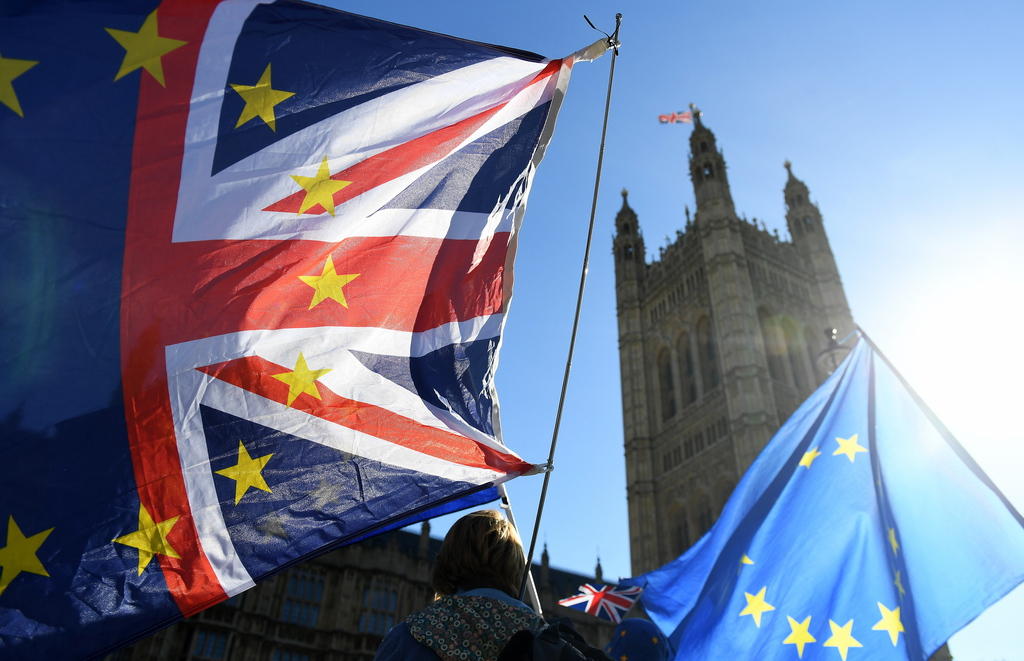
Switzerland wants to intensify relations with UK after Brexit

What will happen to British-Swiss relations after Brexit? This was the focus of bilateral talks between Foreign Affairs Minister Ignazio Cassis and his British counterpart Jeremy Hunt in Bern on Thursday.
The two ministers discussed the Federal Council’s “Mind the Gap” strategy, which aims to ensure that bilateral relations between Switzerland and BritainExternal link continue as smoothly as possible after the Britain’s planned departure from the EU on March 29.
Around 42,000 British citizens live in Switzerland and some 34,000 Swiss live in Britain.
+ Why Swiss abroad fear for the future in the UK
Bilateral relations between the two countries have their legal basis to a large extent in Switzerland’s bilateral agreements with the EU, which Hunt recently compared to the Soviet UnionExternal link.
These legal bases will have to be replaced following Brexit. In a statement on Thursday, the Federal Council said that as part of its Mind the Gap strategy, it “intends to safeguard the existing mutual rights and obligations beyond the date of the UK’s withdrawal from the EU as far as possible, and to deepen them in areas where there is an interest in doing so”.
Cassis and Hunt also discussed various security challenges and regional issues, for example concerning Saudi Arabia.
The meeting was part of the regular, high-level diplomatic visits between the two countries. In autumn 2016, a couple of months after British voters decided to pull Britain out of the EU, the Federal Council set up an interdepartmental steering group, coordinated by the foreign ministry, to carry out the technical work on relations between Switzerland and the UK.

More
What would a no-deal Brexit mean for Brits in Switzerland?

In compliance with the JTI standards
More: SWI swissinfo.ch certified by the Journalism Trust Initiative

















![The four-metre-long painting "Sonntag der Bergbauern" [Sunday of the Mountain Farmers, 1923-24/26] had to be removed by a crane from the German Chancellery in Berlin for the exhibition in Bern.](https://www.swissinfo.ch/content/wp-content/uploads/sites/13/2025/12/01_Pressebild_KirchnerxKirchner.jpg?ver=8f77363a)











You can find an overview of ongoing debates with our journalists here . Please join us!
If you want to start a conversation about a topic raised in this article or want to report factual errors, email us at english@swissinfo.ch.